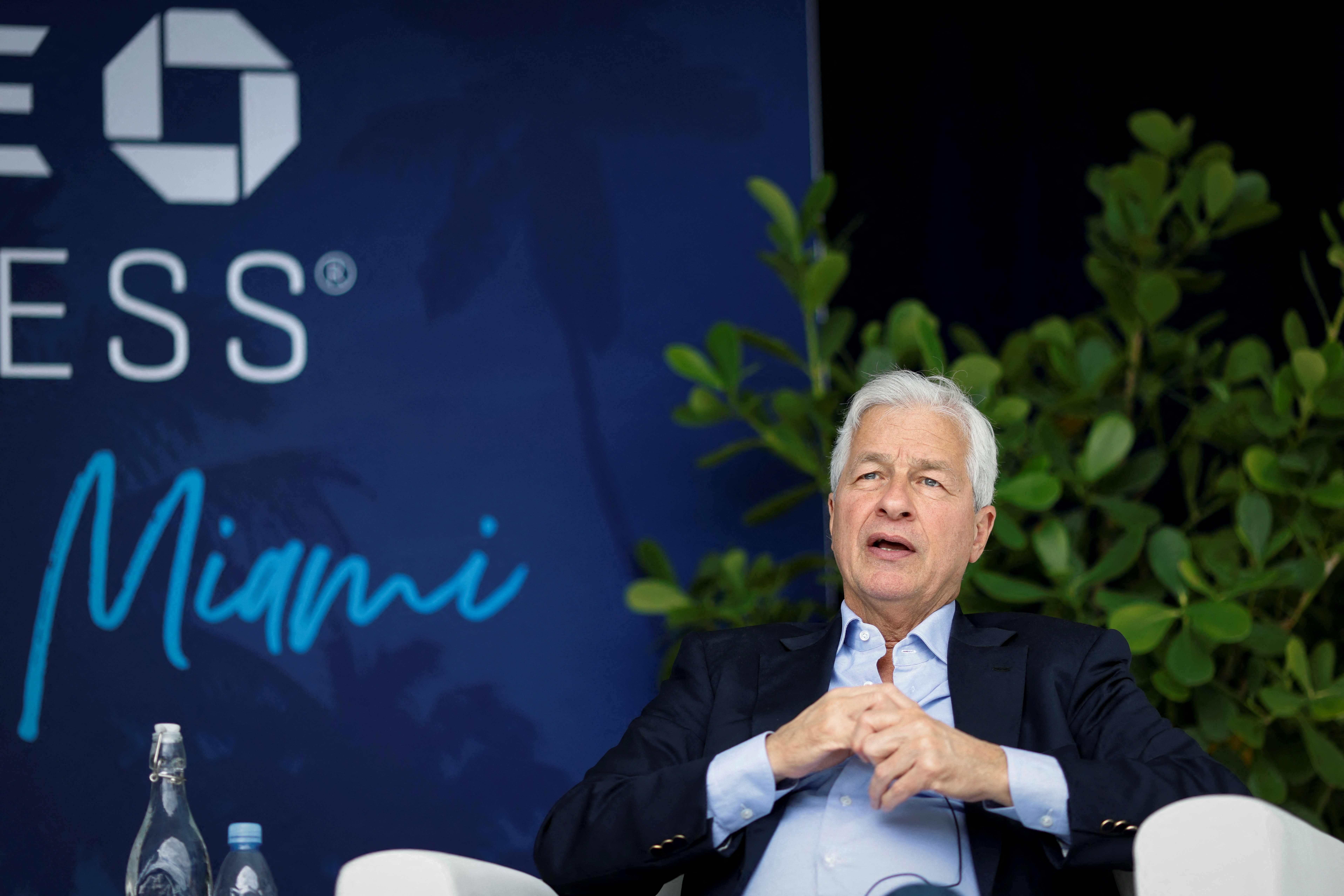- He and his executives warn that the current performance is unsustainable, and that JPMorgan is, in analyst-speak, over-earning.
- He has cautioned that rates could hit 7% compared with about 5% now, and advises that wars in the Middle East and Ukraine make this “the most dangerous time the world has seen in decades.”
Jamie Dimon makes anxiety a feature not a bug

Jamie Dimon, Chairman of the Board and Chief Executive Officer of JPMorgan Chase & Co., speaks during the event Chase for Business The Experience - Miami - REUTERS/Marco Bello
In defiance of external ructions, JPMorgan reported a 22% yearly increase in earnings for the three months ended Sept. 30, including a 40% return on equity in its giant consumer bank. Its future is also rosy. Despite sharp rate hikes and softening household finances, the lender raised its interest-income forecast for 2023, while reducing its estimate of credit-card write-offs and expenses. The cost of bad debts rose from the previous quarter, but charges taken against future delinquencies fell. The same happened at rivals Citigroup (C.N) and Wells Fargo (WFC.N), which also unveiled results on Friday.
With the anxiety comes indignation, in the form of ravings about the impact of upcoming changes to capital requirements for U.S. banks. Peers also have vowed to “advocate” against Basel 3, but none has gone as far as Dimon, who last month questioned the “goddamn point” if it makes his financial institution hold more capital than European peers.
At the same time, the very reason Dimon can justly call his balance sheet a “fortress” is that he has, for more than a decade, kept one eye on worst-case scenarios. If calamity strikes, JPMorgan’s high returns, high capital levels and sheer size make it akin to a safe haven. As Dimon spreads the dread, that competitive reality probably hasn’t escaped him.

(The author is a Reuters Breakingviews columnist. The opinions expressed are his own.)
Follow @johnsfoley on X
CONTEXT NEWS
JPMorgan said on Oct. 13 that it generated $40 billion of revenue in the third quarter, a 22% increase from the same period a year earlier and roughly in line with what analysts were expecting, according to Visible Alpha estimates. Earnings per share of $4.33 represent a 38% yearly increase and beat estimates of $3.91.
Chief Executive Jamie Dimon warned that the risk of inflation remained elevated, and that geopolitical tensions and wars made this perhaps “the most dangerous time the world has seen in decades.” He also warned that planned increases to bank capital requirements could create “real world consequences.”
The bank raised its forecast for interest income for the full year to $89 billion, from guidance of $87 billion given in July. It also slightly reduced its forecast of expenses and credit-card write-offs from numbers given with second-quarter earnings.


No comments:
Post a Comment